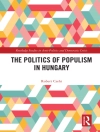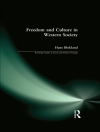The central thesis of Foucault’s Critical Ethics is that Foucault’s account of power does not foreclose the possibility of ethics; on the contrary, it provides a framework within which ethics becomes possible. Tracing the evolution of Foucault’s analysis of power from his early articulations of disciplinary power to his theorizations of biopower and governmentality, Richard A. Lynch shows how Foucault’s ethical project emerged through two interwoven trajectories: analysis of classical practices of the care of the self, and engaged practice in and reflection upon the limits of sexuality and the development of friendship in gay communities. These strands of experience and inquiry allowed Foucault to develop contrasting yet interwoven aspects of his ethics; they also underscored how ethical practice emerges within and from contexts of power relations. The gay community’s response to AIDS and its parallels with the feminist ethics of care serve to illustrate the resources of a Foucauldian ethic-a fundamentally critical attitude, with substantive (but revisable) values and norms grounded in a practice of freedom.
Richard A. Lynch
Foucault’s Critical Ethics [PDF ebook]
Foucault’s Critical Ethics [PDF ebook]
Mua cuốn sách điện tử này và nhận thêm 1 cuốn MIỄN PHÍ!
Ngôn ngữ Anh ● định dạng PDF ● ISBN 9780823271276 ● Nhà xuất bản Fordham University Press ● Được phát hành 2016 ● Có thể tải xuống 3 lần ● Tiền tệ EUR ● TÔI 6736368 ● Sao chép bảo vệ Adobe DRM
Yêu cầu trình đọc ebook có khả năng DRM












